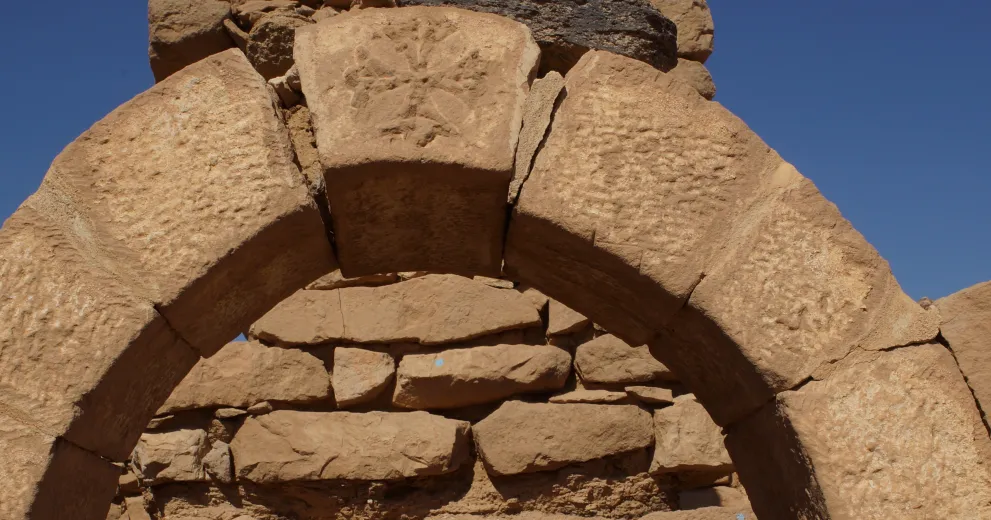The monastery of Ghazali is situated in the lower part of the Wadi Abu Dom, about 15 kilometres from the Nile, opposite Jebel Barkal. It dates from the 10th century AD, when Nubian Christianity was at its height, and is a good example of monasticism in this period.
Due to its remote location, various types of construction at the site are exceptionally well preserved. The monastery was surrounded by a strong enclosure wall built of schist slabs into which entrances are situated in the north and west walls. The main feature inside the walled area is a church built of mudbricks which rests on lower courses of dressed sandstone blocks. Its interior is plastered and covered in graffiti. Only recently, a second smaller church was discovered south of the larger structure. Other excavated buildings include refectories with circular benches, the layout of which follows a common Eastern Orthodox tradition, monks' cells and a set of latrines.
A substantial cemetery south of the monastery doubtlessly served as the burial ground of the monks. The graves were organised in rows and marked by box-shaped superstructures built of stone slabs. In this period, tomb stones took the shape of rectangular pottery plates with an incised funerary prayer. Many of those from Ghazali were written in Coptic, indicating that the congregation may have included Egyptian monks who had fled to Nubia from persecution in their homeland.
Other components of the site include an extramural settlement and a production area with iron smelting furnaces.
